Experience Stress-Free Days with Thca-Free CBD Gummi Bears – Australia’s Legal Solution
Tired of worrying about Australia's strict laws regarding THCA? Our THC-free CBD Gummi Bears ar…….
Australia, known for its progressive policies and diverse landscapes, has found itself at the center of a global debate regarding the legalization of Tetrahydrocannabinol (THC), the primary psychoactive compound in cannabis. The question of whether THC is legal in Australia is complex, with implications reaching far beyond borders. This article aims to dissect this topic, providing an in-depth exploration of Australia’s unique position in the global cannabis landscape and its potential impact on various sectors. By delving into history, policy, economic factors, technology, and societal shifts, we will uncover the multifaceted nature of THC’s legality in Australia and its future trajectory.
Definition: THC legalization in Australia refers to the legal status of products containing tetrahydrocannabinol (THC), a compound derived from cannabis plants, within the country’s borders. This includes both medical and recreational use, as well as its role in various industries.
Historical Context: The history of cannabis in Australia dates back to the late 19th century when it was introduced for medicinal purposes. However, its trajectory took a significant turn during the 20th century with increasing criminalization. In the 1970s, Australia followed a global trend by classifying cannabis as a Schedule 4 substance under the Poisons and Drugs Act 1975, effectively making it illegal for all purposes. This decision was largely influenced by international conventions and concerns over the potential health risks associated with cannabis use.
Significance: Understanding this historical context is crucial as Australia’s approach to THC has evolved, reflecting global shifts in public perception and scientific understanding of cannabis. The current debate revolves around striking a balance between addressing public health concerns and recognizing the therapeutic benefits and economic potential of cannabis-derived products.
The international landscape surrounding THC legalization is dynamic, with various countries adopting different strategies. Australia’s position within this tapestry has been influenced by global trends and regional differences.
| Region | Legal Status | Key Trends |
|---|---|---|
| North America | Legal for medical and/or recreational use in multiple states/provinces (e.g., USA, Canada) | Rapid normalization, increasing acceptance of adult-use cannabis |
| Europe | Varied, with many countries legalizing medical cannabis and some allowing limited recreational use | Growing market opportunities, increasing investment from international players |
| Asia | Mixed, with some countries embracing medicinal cannabis while others maintain strict controls | Emerging markets, potential for regional cooperation on regulatory frameworks |
| Oceania | Australia leads the region with a cautious approach to decriminalization and research-driven legalization | Regional collaboration on harmonizing regulations |
Australia’s approach has been influenced by these global trends, particularly in recognizing the therapeutic benefits of cannabis. The country’s unique position allows it to contribute to international conversations on best practices and regulatory frameworks.
The economic implications of THC legalization are significant, impacting various sectors from healthcare to agriculture and tourism.
Market Dynamics: The global cannabis market is projected to reach USD 73.6 billion by 2027, with Australia playing a pivotal role in this growth. Legalization would unlock a substantial domestic market, fostering competition and innovation among local and international players. According to a report by Grand View Research, the Australian medical cannabis market alone is expected to surpass AUD 500 million by 2025.
Investment Patterns: Australia has already witnessed a surge in investment in cannabis-related startups and businesses since the legalization of research and pharmaceutical cannabis in 2018. This trend indicates a growing confidence in the sector, with potential for further expansion if THC is fully legalized.
Economic Impact: The legalization of THC could stimulate economic growth through tax revenues from regulated sales, job creation in related industries, and increased tourism. A study by the Australian Institute of Health and Welfare suggests that legalizing cannabis for medical use could save the healthcare system up to AUD 194 million annually by reducing prescription drug costs.
Technological breakthroughs have revolutionized the cannabis industry, enhancing quality, safety, and accessibility. These advancements are crucial in shaping the future of THC legalization in Australia.
Cultivation Techniques: Advanced cultivation methods like hydroponics, aeroponics, and controlled environment agriculture (CEA) enable year-round production with precise control over plant growth. This ensures consistent product quality and reduces potential contaminants.
Cannabinoid Extraction: Refinement in extraction processes has led to the isolation of various cannabinoids, including THC, allowing for a diverse range of products. These include oils, tinctures, capsules, edibles, and topicals, catering to specific consumer needs and preferences.
Analytical Testing: Improved analytical techniques enable precise measurement of cannabinoid concentrations, ensuring product consistency and safety. Advanced testing methods also detect contaminants, heavy metals, and pesticide residues, enhancing product quality control.
Digital Solutions: Technology-driven solutions like blockchain, artificial intelligence (AI), and mobile apps are transforming the cannabis industry. Blockchain ensures transparent supply chains, AI optimizes cultivation and production processes, while mobile apps provide consumers with accessible information on products and dosage.
Australia’s approach to THC regulation has evolved through a combination of federal and state/territorial initiatives. This complex policy landscape shapes the current legal status and future direction of THC in Australia.
Federal Regulations: The Poisons and Drugs Act 1975 is the primary piece of federal legislation governing drugs, including cannabis. Under this act, THC is classified as a controlled substance, with severe penalties for unauthorized possession, use, and distribution. However, exceptions exist for medicinal use under specific circumstances.
State/Territorial Initiatives: Each state and territory has its own legislative framework. In 2018, significant progress was made when the Australian government legalized cannabis for research and pharmaceutical purposes. This led to the establishment of the Therapeutic Goods Administration (TGA) as the regulatory body overseeing medicinal cannabis products.
Key Policy Areas:
Medicinal Cannabis: The TGA evaluates and approves cannabis-based medicines, setting standards for quality, safety, and efficacy. Several prescription medications containing low-THC or THC-free cannabinoids have been approved for various medical conditions.
Recreational Use: Some states/territories have decriminalized possession of small amounts of cannabis for personal use, focusing on education and treatment rather than criminal penalties. However, recreational legalization at the federal level remains a contentious issue.
Industrial Hemp: Distinguishing between hemp (low THC content) and cannabis is crucial. The Hemp Industry Association Act 2019 provides a legal framework for the cultivation and production of industrial hemp, promoting its diverse applications in textiles, food, and biofuel industries.
Despite the growing momentum for THC legalization, Australia faces several challenges and criticisms that must be addressed for a comprehensive policy shift.
Main Challenges:
Public Perception: Negative stereotypes surrounding cannabis use persist, often overshadowing the therapeutic benefits. Educating the public about responsible use and addressing misconceptions is vital to gaining support for legalization.
Legal and Regulatory Complexity: The current legal framework creates uncertainty, particularly regarding recreational use. Harmonizing federal and state/territorial laws and establishing clear guidelines for various forms of THC-related activities are essential steps.
Healthcare Access: Ensuring equitable access to medicinal cannabis products remains a concern. Expanding healthcare provider training in cannabis medicine and improving reimbursement policies can address these issues.
Proposed Solutions:
Exploring real-world examples provides valuable insights into the potential outcomes of THC legalization in Australia.
Case Study 1: Medical Cannabis in New South Wales (NSW)
In 2020, NSW became the first Australian state to implement a prescription-only medicinal cannabis program. This initiative allowed patients with specific medical conditions, such as multiple sclerosis and epilepsy, access to approved cannabis-based medicines. The program’s success lies in its rigorous evaluation process, patient selection criteria, and close monitoring of outcomes. Over 18 months, over 4000 patients were prescribed medicinal cannabis, leading to improved quality of life and reduced reliance on traditional medications.
Lessons Learned:
Case Study 2: Industrial Hemp Farming in Victoria
Victoria has emerged as a leader in industrial hemp cultivation, providing a model for sustainable agricultural practices and economic growth. Farmers are utilizing advanced cultivation techniques to produce high-quality hemp seeds and fiber, catering to global markets. The state’s supportive regulatory environment, including simplified licensing processes and market access, has encouraged investment and innovation. This success story highlights the potential for THC-adjacent industries to thrive with appropriate policy support.
Key Takeaways:
The future of THC in Australia presents a mix of opportunities and challenges, requiring strategic considerations to shape its development.
Emerging Trends:
Recreational Legalization: Public support for recreational cannabis legalization is growing, with recent polls indicating a majority in favor. This trend may lead to a federal policy change, allowing states/territories to set their regulations.
Cannabis Tourism: Australia’s diverse landscapes and unique tourist attractions could attract cannabis tourism, particularly if neighboring countries legalize recreational use. This presents opportunities for the hospitality industry while requiring careful planning to ensure responsible use.
Research and Development: Continued investment in cannabis research is expected, focusing on new cannabinoids, improved cultivation methods, and innovative product development.
Strategic Considerations:
Harmonized Regulations: Developing a unified national framework for THC-related activities will foster consistency across states/territories, simplifying compliance for businesses and providing clear guidance to consumers.
Education and Public Engagement: Ongoing public awareness campaigns and educational initiatives are crucial to address misconceptions, promote responsible use, and gain support for policy changes.
Healthcare Integration: Integrating medicinal cannabis into mainstream healthcare requires expanding access, improving reimbursement policies, and enhancing provider training to ensure equitable patient care.
International Collaboration: Australia can contribute to global conversations on regulatory best practices, particularly in harmonizing international standards for product quality and safety.
The question of THC legality in Australia is a delicate balance between addressing public health concerns and harnessing the therapeutic and economic potential of cannabis-derived products. The country’s unique position allows it to lead by example, shaping global conversations on responsible cannabis use and effective regulation. Through historical reflection, global analysis, economic insights, technological advancements, policy exploration, and real-world case studies, this article has presented a comprehensive overview of the THC landscape in Australia.
As public attitudes evolve and scientific understanding deepens, Australia stands at a pivotal moment to embrace the future of THC, contributing to a diverse and responsible cannabis ecosystem. The path ahead is fraught with challenges but also presents unprecedented opportunities for innovation, economic growth, and improved healthcare solutions.
Q: Is cannabis legal in Australia?
A: Currently, cannabis (or marijuana) remains illegal for recreational use across all states and territories in Australia. However, low-THC or THC-free cannabinoids are available for medicinal purposes under strict prescription requirements.
Q: What is the legal age for using medicinal cannabis in Australia?
A: The legal age for accessing medicinal cannabis varies between states/territories, typically ranging from 18 to 25 years old. Each jurisdiction has its own eligibility criteria and approval processes.
Q: Can I grow my own cannabis at home for personal use?
A: Personal cultivation of cannabis is generally not allowed due to legal restrictions. However, some states/territories have decriminalized possession of small amounts for personal use, focusing on education rather than criminal penalties.
Q: How does Australia’s THC legislation compare to other countries?
A: Australia’s approach is unique in its cautious yet progressive stance. It lags behind several North American and European countries that have fully legalized cannabis for medical and/or recreational use. However, it leads in research-driven legalization and has a robust regulatory framework for medicinal cannabis products.
Q: What are the potential economic benefits of legalizing THC in Australia?
A: Legalization could stimulate economic growth through tax revenues from regulated sales, job creation, and increased tourism. The healthcare sector could also benefit from cost savings associated with reduced reliance on certain prescription drugs.

Is THCA illegal in Australia? No longer! Our premium Delta 9 Hash offers a legal and safe solution f…….
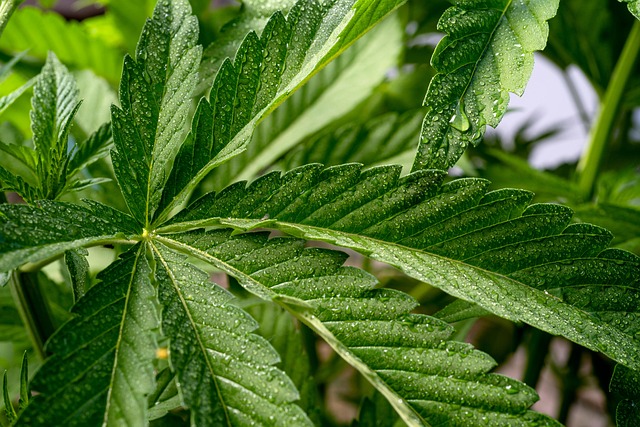
Tired of wondering about THCA legality in Australia? Our hemp extract capsules offer a straightforwa…….

In Australia, the legal status of THC (Delta-9 Tetrahydrocannabinol) has recently shifted, offering…….
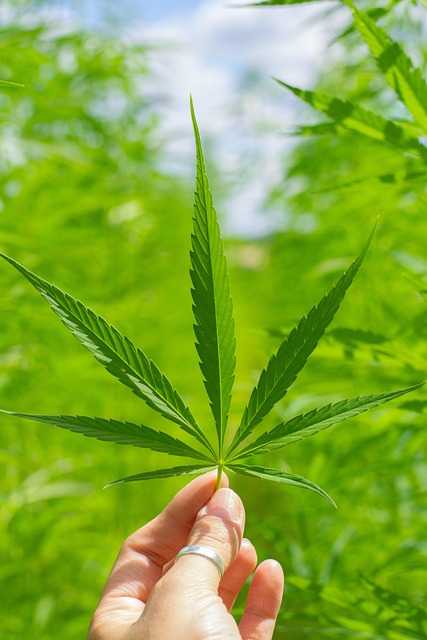
Tired of worrying about THCA legality in Australia? Our premium Delta 9 THC vapes offer a seamless a…….
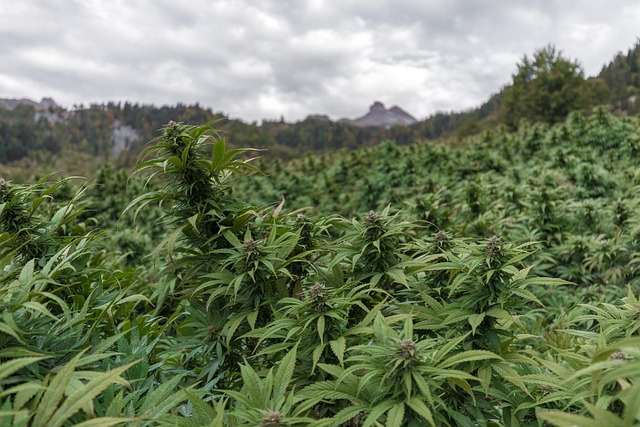
In Australia, where THCA (Tetrahydrocannabinol Acid) hemp buds are now legally available, you can bi…….
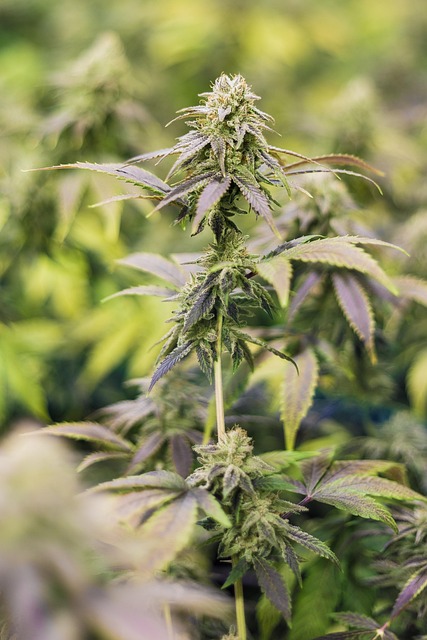
Looking for a legal way to unwind without breaking Australian laws? Delta 8 vapes are your answer. D…….
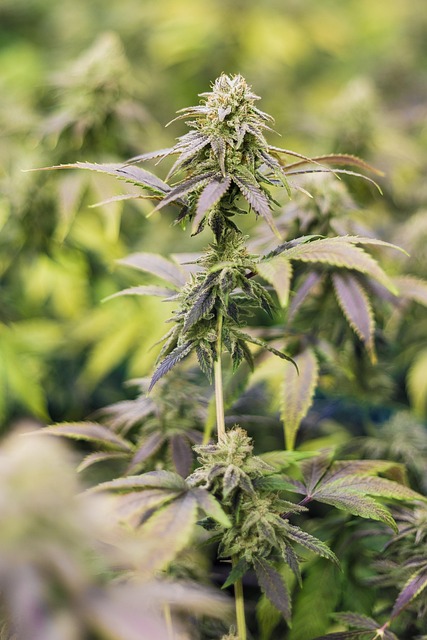
Tired of the legal uncertainty surrounding THCA in Australia? Say goodbye to questioning its legalit…….